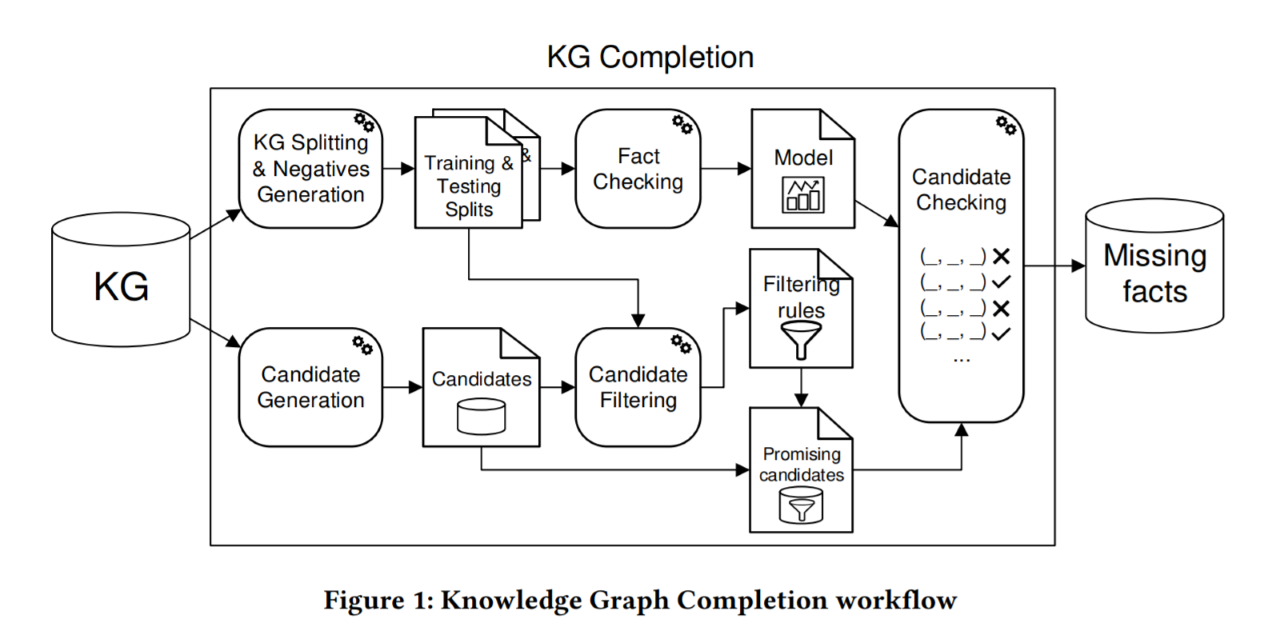Knowledge Graphs (KGs) contain large amounts of structured information. Due to their inherent incompleteness, a process known as KG completion is often carried out to find the missing triples in a KG, usually by training a fact checking model that is able to discern between correct and incorrect knowledge. After the fact checking model has been trained and evaluated, it has to be applied to a set of candidate triples, and those that are considered correct are added to the KG as new knowledge. However, this process needs a set of candidate triples of a reasonable size that represents possible new knowledge, in order to be evaluated by the fact checking task and, if considered to be correct, added to the KG, enriching it. Current approaches for selecting candidate triples for their correctness checking either use the full set possible missing candidate triples (and thus provide no filtering) or apply very basic rules to filter out unlikely candidates, which may have a negative effect on the completion performance as very few candidate triples are filtered out. In this paper we present CHAI, a method for producing more complex rules that are able to filter candidate triples by combining a set of criteria to optimize a fitness function. Our experiments show that CHAI is able to generate rules that, when applied, yield smaller candidate sets than similar proposals while still including promising candidate triples.

Related Articles
2019
Generating rules to filter candidate triples for their correctness checking by knowledge graph completion techniques Proceedings Article
In: Proceedings of the 10th International Conference on Knowledge Capture, pp. 115–122, 2019.
How to use CHAI
Check the github linked above for more information about CHAI’s usage.